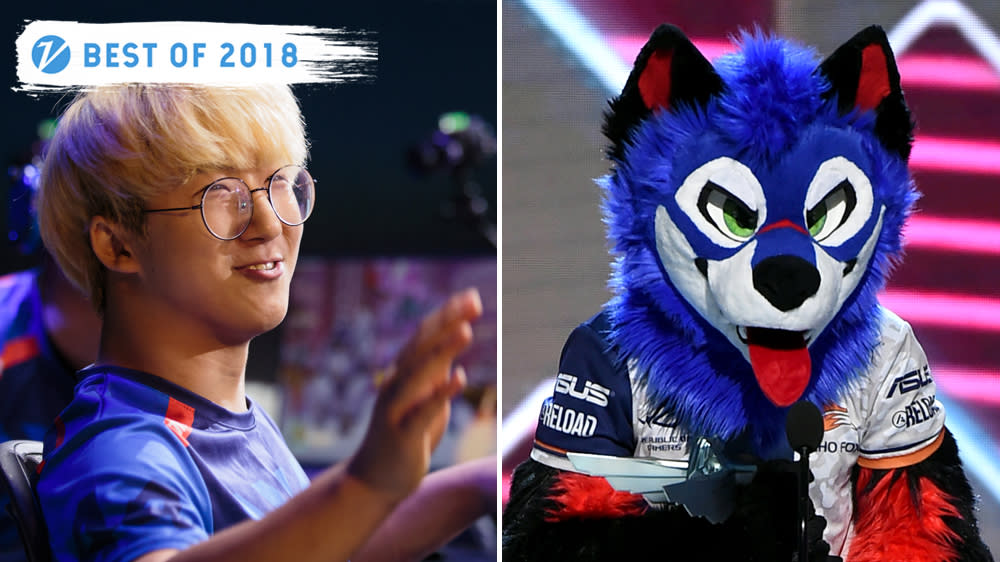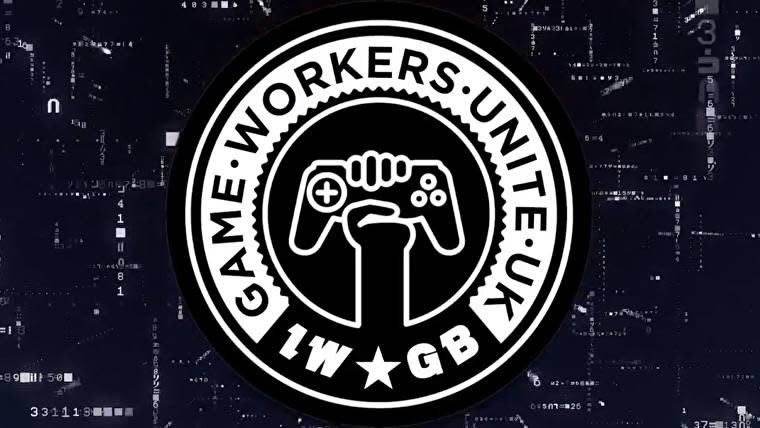Most Influential in Video Games 2018: Esports Stars, Union Leaders, Iconic Indies

This year was not one for consensus. That’s true politically – the country is entering its fourth consecutive year of tearing itself apart at the seams – but even in the proxy battlefields, like video games, or movies, or music, it was difficult to suss out a dominant critical trend or a cultural movement. That makes capstone lists like these difficult to write.
That makes capstone lists like these difficult to write. How do you sum up the video game industry, when the industry is becoming more stratified than ever before? This is certainly true for the art itself – I’ve had just as many conversations about the sumptuous beauty of Red Dead Redemption 2’s vision as I’ve had about the same game’s obstinate control scheme and deliberate pacing – but this year, those debates seemed to transcend the products on the shelves, and dovetailed into questions about our culture and our labor economy.
I’m reminded of Will Partin’s piece in Waypoint that evaluated Artifact as a miniature free-market, rather than a video game, or the work of Cecilia D’Anastasio at Kotaku on exposing toxic workplace conditions at Riot Games, a broader issue in the game industry that has yet to be fully addressed.
So how do we name prestigious, triple-A auteurs, at a time where there’s a considerable bastion of developers pushing back on the long-festering toxic workplace demands that those studios tend to encourage? How do we name esports pros, at a moment where the long-term future of the scene is more murky than ever? How do we highlight indie creatives, despite knowing how unfair the Steam roulette wheel can be?
There is no way to easily synthesize all these contrasting realities about the games business. So instead, we decided to cover all of our bases, and let the discrepancies ride out in the open. From CEOs to labor organizers, from arthouse thinkers to a “Fortnite” mega-streamer, here are 2018’s most influential people in games.
At the tail end of 2017, Tyler “Ninja” Blevins was a retired Halo pro and a reasonably popular streamer. Miraculously, he will enter 2019 after appearances on both Ellen and The Tonight Show, a Games Award trophy in his coffers, and an incredible night of duos with Drake that ground the internet to a halt back in March. The controversies are well-documented, (what exactly do you mean when you say you can’t appear on stream with a girl?) but there’s absolutely no doubt that Ninja stands as the first bona fide crossover Twitch superstar. Watching him this year was a glimpse of things to come; the inevitable symbiosis of social fame and Hollywood fame. Surely, this is not the last time Jimmy Fallon does a Fortnite dance on camera.
Emma Kinema, and the rest of the Games Workers Unite organizers

This was the year video game labor broke. Well, that’s not true, video game labor has been broken for a long, long time. The particulars are as old as the industry; oppressive semi-mandated crunch workweeks handed down by management, studios getting shuttered overnight, and class-action lawsuits filed by disgruntled former employees that reveal ugly truths. And so, along came Game Workers Unite, a wide-ranging organization mobilizing a unionized workforce in the games business. In March, the group stormed through GDC and presented their case, representing real momentum towards solving some of the long-standing issues in the industry. We’re featuring Emma Kinema, because she’s been the most public-facing figure in the collective, but symbolically this entry represents anyone in the industry working towards a more equitable relationship with their publishers. “It’s been so taboo for so long,” Emma told Polygon earlier this year. “But now people are ready to stick their necks out a little bit for this.
It’s been fascinating to follow SonicFox from his years as a strong, but relatively unacclaimed contender on the Mortal Kombat pro circuit to where he is today – a black, queer teenaged furry winning fighting game titles on ESPN and the Evo main stage, and easily one of the most popular esports athletes on the planet. SonicFox’s technical prowess speaks for itself, but his real power comes with how open and joyous he is in his identity, and how that can reveal the fundamental unity of the gaming community on its best days. His “im gay, also the best dbfz player on this f—ing planet dont forget it,” is on the shortlist for greatest tweet of all time, but his best moment of the year came at the Game Awards, where he donned his fursuit and accepted the trophy for Esports Player of the Year. “I’m gay, black, a furry – pretty much everything a Republican hates – and also the best esports player in the world.”
If you want a model to how to live your life in the games industry, your best bet might be Rami Ismail. His work at Vlambeer is heroic, but beyond that he’s been an endless wealth of resources for other developers through presskit, (a free module that helps studios put together professional one-sheets for outreach to the media,) his captivating trade show panels, (like the ongoing #1reasontobe symposium, which this year focused on the international community of developers who don’t have the privilege to be able to travel to a showcase like GDC.) Or his profoundly readable, empathetic blog. Live life more like Rami. That was true in 2018, and it’ll be true in 2019.

It’s difficult to remember now, but at the end of 2017, Epic was in a precarious place. “Paragon,” the company’s highly touted massive online battle arena game, was floundering, and “Fortnite” was finally exiting development hell with a wonky, “Minecraft”-lite survival campaign that seemed a tad out-of-step with the dominant trends of the industry.
But then 2018 happened. “Fortnite’s” battle royale module became a phenomenon so large and all-encompassing that it’s difficult to compare it to anything else we’ve seen in the history of video games, and Epic Games founder Tim Sweeney immediately emerged as one of the most powerful people in the entire industry. Today, Epic is valued at $8.5 billion, and the company recently launched an online storefront to go head-to-head with Steam, Discord, Twitch and other vendors. (Sweeney is promising an 80 percent revenue share with developers, which dwarfs the 70/30 split standard on Steam. He’s also currently subtweeting encouragement to the competition on the regular.) It’s a fascinating turn for Epic – which previously spent a generation working on the profitable, but never truly iconic, “Gears of War” franchise – to now be contending with megatons like Riot, Valve, and Activision Blizzard. We’ll see what the future holds for the company under Sweeney’s stewardship, because as big as 2018 was, 2019 promises to be even huger.
How do you follow-up your soggy, Kafka-esque bureaucracy simulator? By releasing an equally ersatz narrative adventure that follows a time-travelling insurance adjuster in the 18th century! This was the year where Lucas Pope showed exactly how differently his brain works from the rest of us. “Papers, Please” was great, but his masterpiece, “The Return of the Obra-Dinn,” firmly cements him as one of the foremost creative weirdos working in the experimental indie space. It is a testament to the game’s ingenious puzzle design and wonderfully dirgeful aesthetic that “Obra-Dinn” – a deeply opaque experience – is still being recognized by ultra-mainstream publications like IGN and Gamespot as one of the year’s best. Indie development is brutal in 2018, and Pope is a necessary inspiration; it is possible to stay as weird as you want, and still have a lucrative career.
Cecilia D’Anastasio
Kotaku’s Cecilia D’Anastasio is responsible for the most important piece of games reporting of the year, and maybe even years. Her months-long investigation into the latent, pervasive sexism at Riot Games revealed a company consumed by a piggish gamer id buried deep into the bones of its culture. D’Anastasio never levies accusations of extreme sexual harassment, but instead revealed the sickness in the infrastructure; qualified women getting passed up for promotions, or having their gamer bona fides grilled on a weekly basis, or being forced to stand pat while the chucklehead steakhouse-bros at the executive level tap each other’s balls and fart in each other’s faces. (Seriously, that’s a crucial juncture in the narrative.) It’s the kind of story that’s shocking but not surprising; filling you with dread for how commonplace the chauvinism is in an industry that continues to keep true equality at arm’s length. Reporting like this is especially necessary, at a moment where it feels like the entire global workforce is trying to expel some of the demons left in their office culture for far too long.
Overwatch League wants to be the NBA. A 24/7 newscycle full of drama, intrigue, beef, and Twitter-stopping highlights. It got closer to that than anyone could’ve thought this year after selling out Barclays Center and booking DJ Khaled, and there’s no better reason for that than players like Bang “JJoNak” Sung-hyeon – a teenaged wunderkund with a deft sense of street style who happened to be named MVP of the inaugural season. Any sports business needs to create stars in order to succeed. Unfortunately, that’s easier said than done, (take a look at all the other floundering esports initiatives which can’t find a captivating player to hook their brand on.) But that was never an issue with Overwatch League. JJoNak, and the rest of his Excelsior roster were effortlessly cool, confident, and well-dressed from the beginning. They added a professional, LeBron-like prestige to the upstart league from the beginning, and today they’re the sort of icons on the receiving end of fan-art and Twitter lust on the regular. Not bad for a support main.
In which a mysterious English woman with a (reported) debilitating case of Tourette’s shoots to the top of the Twitch leaderboards practically overnight. There are a lot of stressful conversations to have about Sweet_Anita; the specifics of her illness remain murky, as does the true intentions of her chat, (who tune in from around the world to ask her questions, and watch her outbursts.) But it is absolutely clear that she represents the exciting, esoteric future for live-streaming as a medium. (She already has over 300,000 followers on the platform.) Twitch can be a dangerous, mean-spirited place, but Anita proved that she could build a brand around her disability. That’s an important precedent to set in 2018. Hopefully, she’s showing everyone on the internet that no matter what they might think of themselves, they already have all the star power they need.
Clearly, Cory Barlog needed to broker peace with his own creation. The original “God of War” trilogy will always represent some of the greatest character-action games of all time. Kratos, on the other hand, had aged poorly. How do you rehabilitate a man who jammed a woman into clockwork machinery in order to pry a door open? (In a sequence that’s played for laughs, no less.) How do you maintain the same canon without being precious, or over simplamatic? How do you apologize in a way that’s sincere, poignant, and undefensive?
Somehow, Barlog’s direction on the God of War reboot managed to hit those notes perfectly. His grizzled Kratos now bristles with both fury and a sorrowful confusion; because really, how could someone like this, bearing all the sins that he does, ever be trusted to raise a child? There’s no easy answer. The doubts hang on every word. Instead, our new Kratos cobbles together a next chapter with all that guilt firmly in the palm of his hand. There are so many boorish, bloodsoaked franchises from the PS2 era that have no idea how to reinvent themselves in a different generation, and a different culture. Barlog figured it out, and his template will be used for years to come.

Meggan Scavio has worked her entire life to bring more diversity and inclusivity to the games business, and after she was named the president of the Academy of Interactive Arts and Sciences, (and its corresponding industry symposium, The DICE Summit,) her impact was felt immediately. She partnered with GLAAD to fight for more positive LGBTQ representation in games, and she’s engineering the Amplying New Voices summit next year, which outfits minority developers with professional headshots, on-camera training, portfolio workshops. If this industry truly wants to change its culture, it must first put its money where its mouth is in its hiring practices. Bringing in a veteran like Scavio is an important step in the right direction.
Related stories
The 20 Best Classic Soundtrack Albums of 2018
The 10 Best Music Boxed Sets of 2018
Tim Sweeney Talks Epic Games Store Exclusives and Competition
Subscribe to Variety Newsletters and Email Alerts!

